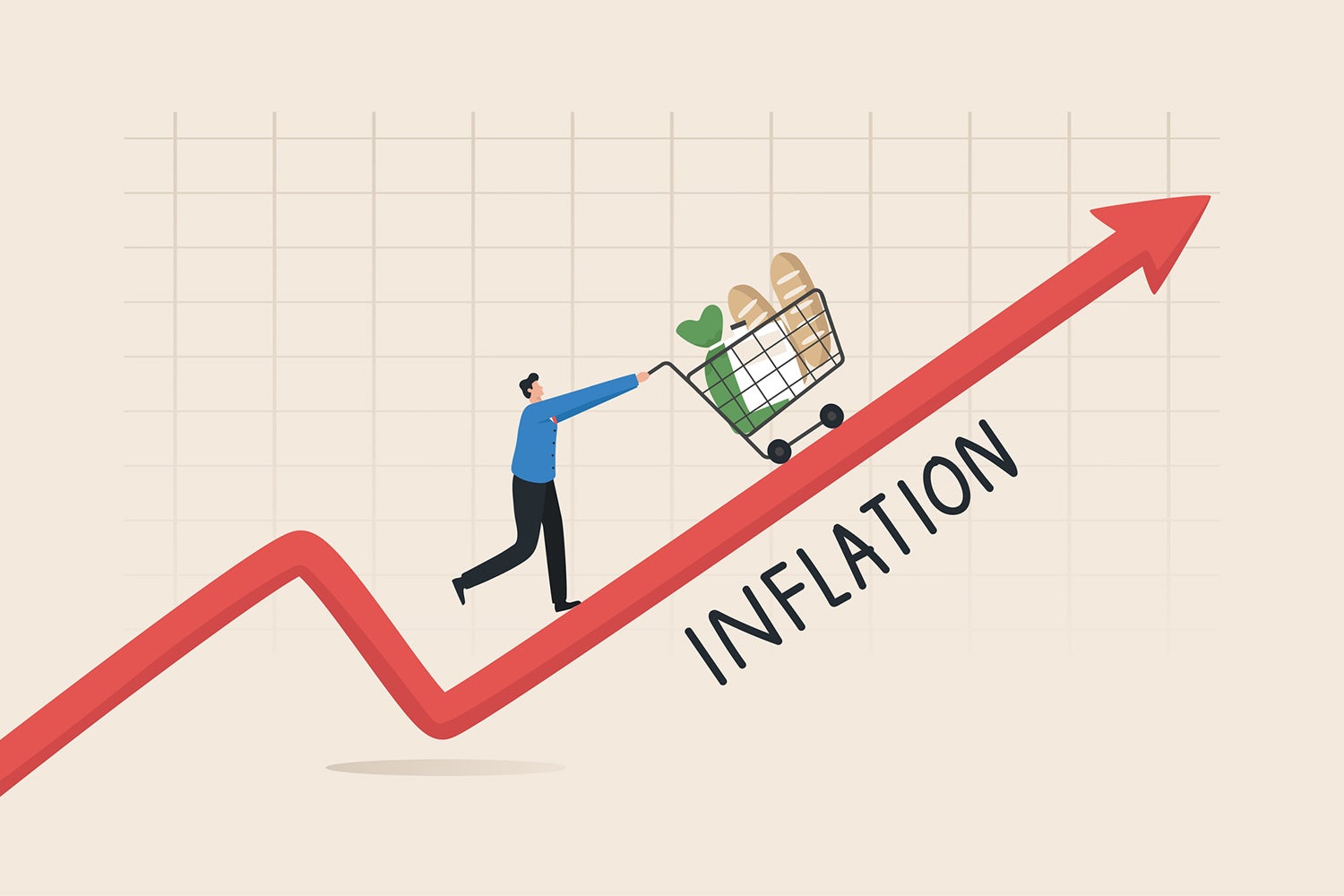Inflation Rises to the Top of India’s Worry List, According to New Ipsos Survey.
Ipsos' study of global citizens found that during the month of February, concerns about inflation (43%), poverty and social inequality (32%), crime and violence (27%), unemployment (27%) and financial corruption (27%) were among the top concerns.

Inflation Rises to the Top of India’s Worry List, According to New Ipsos Survey.
The issue of inflation has been a significant concern for people all over the world. It’s not only affecting individuals but also businesses and economies globally. The situation is no different in India, where the cost of living has been rising at an alarming rate, leaving many Indians worried about their financial security.
According to a recent survey by Ipsos, inflation remains the biggest worry for Indians. According to the Ipsos ‘What Worries the World’ study for February, unemployment was ranked second among urban Indians’ top concerns, with inflation coming in at least one in two for urban Indians.

In 29 nations, the Ipsos “What Worries the World” monthly survey gauges public sentiment on the most pressing social and political concerns. Inflation (52%), unemployment (45%), poverty and social inequality (28%), financial/political corruption (24%), crime and violence (19%), Coronavirus (14%) and climate change (7%), according to the poll, were the top concerns among urban Indians.
“Rising costs and a higher cost of living are having an impact on urban Indians, and inflation has surpassed unemployment as our top concern. The ongoing conflict in Ukraine and the global economic slowdown have severely influenced most economies worldwide, but Indians are currently feeling the brunt of it.
With demand for work far outstripping supply, poverty and the widening gap between the haves and have-nots are realities. Job creation is not keeping up. Growth is still threatened by macro reasons, according to Amit Adarkar, CEO of Ipsos India.
Ipsos’ study of global citizens found that during the month of February, concerns about inflation (43%), poverty and social inequality (32%), crime and violence (27%), unemployment (27%) and financial corruption (27%) were among the top concerns.
In addition to online respondents, Ipsos expanded the offline component of their India sample. As a result, it claimed, the results of this wave cannot be compared to those of other months.
According to Adarkar, the new hybrid-multilingual technique offers a more accurate portrayal of consumer mood among Indians. Consumers in India also noted a decline in their overall optimism for the nation, with urban Indians reporting a 61% drop from 65% in January 2023 in their belief that the nation was headed on the right path.

“India continues to defy the worldwide pessimism trend, with only 38% of people throughout the world believing their nation is headed in the right way. Remarkably, the poll results showed that Singapore (79%), Indonesia (77%) and Malaysia (72%) were the top 3 most optimistic markets.
According to Adarkar, macroeconomic issues are mostly to blame for this decline in optimism. “…as a result of the protracted war, which followed a naggingly protracted pandemic that destroyed the majority of economies.
As our economy depends heavily on domestic consumption, India has nonetheless performed better than most other economies, he claimed. The global advisor survey included 29 countries and was carried out between January 20 and February 3, 2023.
Optimistic Indians
Urban Indians are hopeful, according to Ipso India CEO Amit Adarkar, because India has successfully managed to challenge macroeconomic conditions and dealt with the pandemic tragedy. He continued that domestic spending has been driving the economy, and prompt responses to the fuel crisis and inflation have eased the strain on the populace.
Before the Union Budget was presented on February 1, 2023, this wave was completed. The Budget includes several policies that will ease the tax burden on the middle class so that optimism may increase next month.
What worries Indians?
Indians are most concerned about unemployment, followed by the return of the Coronavirus. Indians rank political and financial corruption at the bottom of their list of concerns.
“Indians are still concerned about finding work and unemployment. This survey was done before the release of the Budget 2023, which contains some specific substantial actions for boosting skills and creating jobs. As a result, the following monthly survey may show a decline in anxiety levels, according to Adarkar.
Corona Concern
Ipso India CEO continued: Precautions should be taken to guarantee that both inbound and outbound travellers are thoroughly vetted. Coronavirus has returned to India’s top list of concerns.
Lower-tier corruption and crime
“Social inequality and crime are two other things to be concerned about. After ranking as the second-largest concern for a considerable amount of time, corruption has fallen on the priority list. He said the February wave will provide a more accurate picture because there is a lag in the survey wave.
The What Fears the World survey by Ipsos examines public opinion on significant social and political topics in 29 countries and uses more than ten years of data to contextualise the most recent results.
Understanding Inflation in India

The term “inflation” refers to the general upward trend in prices over time. In India, inflation has been a persistent problem for several years, with the inflation rate averaging around 6% in the last decade.
The main reasons for the high inflation rate in India are the rise in fuel prices, food prices, and the depreciation of the rupee against other currencies. Prices have increased because of the country’s reliance on imports, mainly crude oil, which drives up the cost of production and transportation.
Impact of Inflation on the Economy and People
Inflation can have several adverse effects on the economy and people. It reduces the purchasing power of consumers, leading to a decline in consumption and investment. High inflation also increases interest rates, making loans more expensive and impacting businesses’ profitability.
As the value of a country’s currency declines due to inflation, it becomes less attractive as an investment and trading partner abroad. The high inflation rate in India has also led to an increase in income inequality, with the rich becoming richer and the poor becoming poorer.




